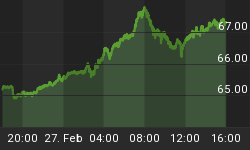As we pass the one year anniversary of the fall of Lehman Brothers, journalists, politicians and market analysts have seized on the occasion to offer seemingly sober assessments of what went wrong and what went right in the lead up and aftermath of the biggest financial event since Black Tuesday.
The most popular storyline offered by these Monday morning quarterbacks is that the mistaken decision to allow Lehman to fail resulted from the Bush Administration's misplaced faith in the free markets. In this telling, the real crises began in the days following the Lehman bankruptcy, which unleashed a financial panic that would have caused complete economic collapse - if not for the subsequent federal intervention.
In reality, Lehman's demise was simply the result of an unfolding crisis that began years before. Popular belief aside, allowing the institution to succumb to the overwhelming debts on its balance sheet was perhaps the only correct decision made by government since this crisis began. The propagandists' complete reversal of cause and effect now threatens to spur the government to compound prior mistakes and bring on the next phase of the financial crisis. Unfortunately, this chapter will likely be much more dangerous than what we saw last fall.
In March of 2008, in the aftermath of the Bear Sterns "bailout" (which itself was a major mistake), equity shareholders walked away with a generous ten dollars per share, all creditors were made whole, and most employees got jobs and bonuses from JP Morgan. As a result of this largess, the Fed created a very serious problem for itself. After Bear, the perception took hold that investment banks were too "interconnected" to fail. The resulting moral hazard decreased the financial stability of the banking system and exposed taxpayers to open-ended risks. The Bush administration rightly determined that a message needed to be sent that Bear was an isolated case, and that capitalism still held sway on Wall Street. The fall of Lehman, which was helped along by the unrealistic recalcitrance of its chairman Richard Fuld, would be that clear signal.
However, politics quickly trumped economics, and the Lehman trial balloon soon turned into the Hindenburg. Washington had no stomach for the ensuing financial carnage, and when other institutions began to topple, Bush, Paulson and Bernanke abandoned their prior convictions and threw all they had into the ensuing bailout bonanza. As a result, the moral hazard that they had sought to avoid now exists on a scale unprecedented in our history. Capitalism has been extinguished on Wall Street, and our financial institutions now exist as public utilities. The presidents of our biggest banks are now the highest paid civil servants in the world!
Since market forces are no longer allowed to allocate capital and control risk, these decisions are now made by government regulators and are then passed through to their subordinates on Wall Street. This perverse organizational structure constitutes a new form of American fascism.
The pain of allowing Lehman to fail will be dwarfed by the agony of bailing out the rest of Wall Street, which is now a foregone conclusion. Just because the Lehman bankruptcy created unpleasant consequences does not mean it was a mistake. On the contrary, sometimes doing the right thing hurts - especially if it is done to avoid even greater pain down the road. It just seems that our representatives are incapable of asking for short-term sacrifice. There is no price they are not willing to force the rest of us to pay to assure their own reelection.
In reward for its gross culpability in creating the financial crisis, the Federal Reserve has been rewarded with extensive new powers. Given the damage it was able to inflict in the past, I can only imagine the havoc that will be wrought by the new "Super Fed."
If the current policies continue, the America we know - for which our forebears risked so much - will cease to exist. The constitution originally established by our Founding Fathers has been under attack almost since inception. Up until now, the greatest damage occurred during Roosevelt's New Deal. However, the current assault on our birthright could be a knockout blow. The last vestige of republican government now hangs in the balance.
For a more in-depth analysis of our financial problems and the inherent dangers they pose for the U.S. economy and U.S. dollar, read Peter Schiff's 2007 bestseller "Crash Proof: How to Profit from the Coming Economic Collapse" and his newest release "The Little Book of Bull Moves in Bear Markets." Click here to learn more.
More importantly, don't let the great deals pass you by. Get an inside view of Peter's playbook with his new Special Report, "Peter Schiff's Five Favorite Investment Choices for the Next Five Years." Click here to dowload the report for free. You can find more free services for global investors, and learn about the Euro Pacific advantage, at www.europac.net.















